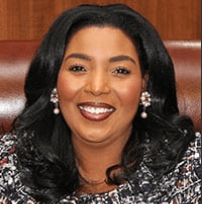Caribbean leaders to send strong message to the United States
ST. KITTS – Caribbean Community (CARICOM) leaders ended their one-day summit with Cuba expressing outrage at the decision of the United States not to grant a license that would have allowed the summit to have been held at the Hilton Trinidad hotel.
In a “Special statement” issued at the end of their deliberations in Trinidad and Tobago on Thursday night, the regional leaders together with Cuba said they were “affronted by the intrusion of the United States against the sovereignty of Trinidad and Tobago.
“This is a unilateral and unwarranted extra-territorial application of the United States Helms Burton law which is contrary to the United Nations Charter and to international law. It also flies in the face of the annual overwhelming rejection of this policy by the United Nations General Assembly,” the statement said.
The Helms Burton law is a United States federal law which strengthens and continues the decades old United States trade and economic embargo against Cuba.
The act extended the territorial application of the initial embargo to apply to foreign companies trading with Cuba and penalized foreign companies allegedly “trafficking” in property formerly owned by U.S. citizens but expropriated by Cuba after the Cuban revolution. The act also covers property formerly owned by Cubans who have since become U.S. citizens.[1]
The Hilton Trinidad hotel had first been named as the venue, but that became impossible after the hotel’s general manager Ali Khan read a statement from Hilton Worldwide, indicating that it is subject to US law, which restricts certain activities as a result of the trade embargo with Cuba.
“The US/Cuban assets control regulations administered by the Office of Foreign Assets Control (OFAC) at the US Department of the Treasury generally prohibits US-based companies from providing any services that benefit the Cuban Government unless specifically licensed. Violations are subject to significant civil and criminal penalties.
“While we have worked with the appropriate governmental agencies in the US and Trinidad and Tobago to secure a licence, we have been informed that one will not be granted,” the statement read.
But the acting public affairs officer Alexander McLaren at the US Embassy told the local media that, to his understanding, the licence is pending and the only reason the Hilton did not get it is because they applied late.
He said the application was dated November 23 and the Office of Foreign Assets Control—a department of the US Treasury—received the application on November 28 and as a result hosting the Cubans at the hotel “will likely take time to resolve.”
Trinidad and Tobago’s Foreign Affairs Minister the Hon. Suruj Rambachan said “The US, I suppose, are within their rights to carry out what they have done in terms of the Helms-Burton law, having their tentacles stretching out here in Trinidad and Tobago as well as the Caribbean.”
Trinidad and Tobago’s Prime Minister Hon. Kamla Persad Bissessar said she would not get involved in United States foreign policy.
“They seem to have some kind of regulation. On our enquiries, I am advised that they have some kind of regulation which prevents any US-owned asset or partly-owned asset from accommodating Cubans. It is clearly a foreign policy of the US and I will not comment on their foreign policy. They are a sovereign nation and they are entitled to govern as they see fit,” Persad-Bissessar said.
But in their statement, CARICOM and the Cuban leaders said they rejected “the intervention of the US authorities which prevented the hosting of the CARICOM-Cuba summit at the Hilton Hotel.
“This was one more demonstration of the injustice of the United States embargo and its harmful impact on the daily life of the Cuban people.
“On this occasion extra-territorial action could have impacted on the success of the summit, but thanks to the commitment and solidarity of the member states of the Caribbean Community we can celebrate an outcome which reflects the strong fraternal bonds between CARICOM and Cuba,” the statement said.
CARICOM Chairman the Right Hon. Dr. Denzil L. Douglas, who is also the Prime Minister of St. Kitts and Nevis told the Caribbean Media Corporation (CMC) that the statement would be sent to the State Department.
He said the Helms-Burton law attempts to “stifle the sovereignty and the rights of sovereign nations to associate and do business and also to a large extent it speaks to the continued the commercial, economic and financial embargo that has been instituted against Cuba which the world basically has been saying has to come to an end”
Dr. Douglas said that he does not expect a “backlash” from Washington as a result of the position adopted by the leaders.
“The United States is a grown up country, The United States knows there are certain policy actions that she takes from time to time that will not be accepted.
“That does not necessarily have to attract animosity and negative reaction. We believe it is the right of the members of this organisation to express their views as to how they have seen the interpretation of what has happened here in Trinidad in what we call the ‘Hilton fiasco’,” he told CMC.

